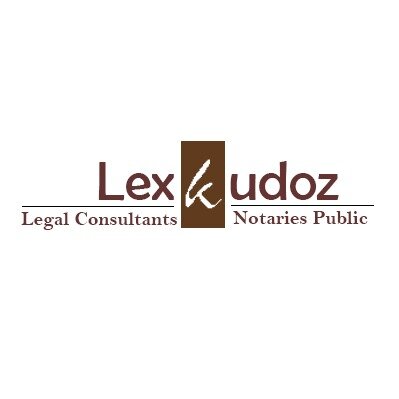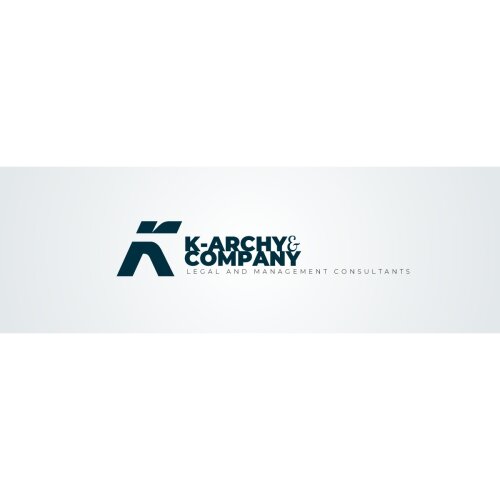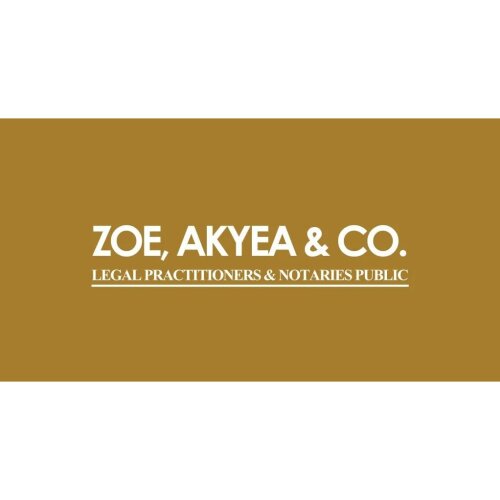Best Reinsurance Lawyers in Ghana
Share your needs with us, get contacted by law firms.
Free. Takes 2 min.
Or refine your search by selecting a city:
List of the best lawyers in Ghana
About Reinsurance Law in Ghana
Reinsurance in Ghana is a rapidly developing sector designed to mitigate the risks faced by insurance companies. Reinsurance involves the insurance company (the "ceding company") delegating a portion of its risk portfolio to another insurance company (the "reinsurer"). This practice helps spread the risk, ensuring that no single company's resources are overly strained by large claims. In Ghana, the reinsurance market is regulated by the National Insurance Commission (NIC), which ensures that reinsurance companies operate within a structured and safe framework. This regulation helps maintain financial stability in the broader insurance market while offering protection and security to policyholders.
Why You May Need a Lawyer
There are several situations where individuals or organizations in Ghana may require legal assistance with reinsurance matters:
- Contract Negotiations: Drafting and reviewing reinsurance contracts are complex tasks. Legal professionals ensure that the terms of the agreements align with regulatory standards and that the interests of all parties are protected.
- Dispute Resolution: Disputes between ceding companies and reinsurers might arise, necessitating legal intervention to resolve conflicts and represent parties in court if necessary.
- Regulatory Compliance: Ensuring compliance with the laws and regulations set forth by the National Insurance Commission is crucial. Legal experts help navigate these regulations.
- Claims Handling: Lawyers assist in the interpretation and handling of claims under reinsurance contracts, which often require specialized legal knowledge.
Local Laws Overview
Reinsurance in Ghana is primarily governed by the Insurance Act, 2006 (Act 724), alongside guidelines from the National Insurance Commission. Key aspects include:
- Licensing Requirements: Reinsurers must be licensed by the NIC to operate in Ghana.
- Capital Requirements: Reinsurance companies must meet specific capital thresholds to ensure financial stability.
- Reporting Standards: They are subject to strict reporting and disclosure standards to maintain transparency and market integrity.
- Dispute Resolution Mechanisms: Procedures and forums are established for resolving disputes that arise between parties in reinsurance contracts.
- Foreign Reinsurers: There are specific provisions for international reinsurers wishing to operate in Ghana.
Frequently Asked Questions
What is reinsurance, and why is it important?
Reinsurance is a process where insurers transfer portions of risk to other insurance companies. It is crucial because it allows for risk spreading, helps insurance companies manage their risk exposure, and maintains financial stability in the insurance industry.
Who regulates reinsurance in Ghana?
The National Insurance Commission (NIC) is the regulatory authority responsible for overseeing the insurance and reinsurance industries in Ghana.
How does reinsurance benefit policyholders?
By spreading risk across multiple insurers, reinsurance ensures that policyholders' claims can be met even in the event of significant losses, thus offering greater security and reliability.
Can foreign reinsurers operate in Ghana?
Yes, foreign reinsurers can operate in Ghana, but they must adhere to local regulations and obtain necessary licenses from the NIC.
What are common challenges in reinsurance contracts?
Challenges include interpreting complex contract terms, handling claims, and resolving disputes between ceding companies and reinsurers.
Why is legal advice important in reinsurance?
Legal advice is crucial to ensure that reinsurance contracts comply with legal standards, manage risk appropriately, and resolve disputes efficiently.
What disputes commonly arise in reinsurance?
Disputes can involve claim amounts, contract interpretation, compliance with contract terms, and differences in expectations between parties.
How do I ensure my reinsurance agreement is compliant?
Engage a legal expert to review the agreement and ensure it meets regulatory standards and properly addresses all parties' interests.
What qualifications should I look for in a reinsurance lawyer?
Seek a lawyer with specialized knowledge in insurance and reinsurance law, familiarity with Ghanaian regulations, and a track record of resolving insurance disputes.
What steps are involved in drafting a reinsurance contract?
The steps include negotiation, drafting, legal review of terms, adherence to regulatory requirements, and finalization by all parties involved.
Additional Resources
To gain a deeper understanding of reinsurance and acquire additional support in Ghana, consider these resources:
- National Insurance Commission (NIC): The main regulatory body providing guidelines, licensing, and oversight for reinsurance companies.
- The Ghana Insurers Association (GIA): Offers industry insights, statistics, and support services to insurers and reinsurers.
- Professional Legal Firms: Specializing in insurance law, these firms offer expert guidance on compliance and contractual disputes.
- Industry Conferences and Seminars: Provides learning opportunities and networking platforms with experts in reinsurance.
Next Steps
If you require legal assistance with reinsurance in Ghana, consider the following steps:
- Research and identify law firms specializing in insurance and reinsurance law.
- Schedule consultations to discuss your specific needs and evaluate potential legal representatives.
- Ensure the lawyer or firm has relevant experience and a solid understanding of local and international reinsurance laws.
- Prepare all relevant documentation and information for your legal representative to provide precise advice and support.
- Regularly communicate with your legal team to stay informed about your case or contract status.
By taking these steps, you can ensure efficient and effective legal assistance tailored to your reinsurance needs in Ghana.
Lawzana helps you find the best lawyers and law firms in Ghana through a curated and pre-screened list of qualified legal professionals. Our platform offers rankings and detailed profiles of attorneys and law firms, allowing you to compare based on practice areas, including Reinsurance, experience, and client feedback.
Each profile includes a description of the firm's areas of practice, client reviews, team members and partners, year of establishment, spoken languages, office locations, contact information, social media presence, and any published articles or resources. Most firms on our platform speak English and are experienced in both local and international legal matters.
Get a quote from top-rated law firms in Ghana — quickly, securely, and without unnecessary hassle.
Disclaimer:
The information provided on this page is for general informational purposes only and does not constitute legal advice. While we strive to ensure the accuracy and relevance of the content, legal information may change over time, and interpretations of the law can vary. You should always consult with a qualified legal professional for advice specific to your situation.
We disclaim all liability for actions taken or not taken based on the content of this page. If you believe any information is incorrect or outdated, please contact us, and we will review and update it where appropriate.
Browse reinsurance law firms by city in Ghana
Refine your search by selecting a city.














